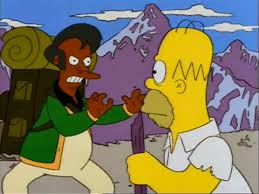The biggest objection to voting for a Third Party is the “wasted vote” argument — the idea that if you vote for someone who will not win, then the vote does not count.
Join any third party and merely suggest that another person consider voting for a third party candidate and you will hear, ad nauseum, “I don’t want to waste my vote.”
What is a Wasted Vote?
An unprincipled vote is the only wasted vote.
Voting for a third party, contrary to popular belief, is not a wasted vote.
What is voting? It’s a chance to tell the country — and perhaps even the world — what your vision of government and society really is.
But how do most of us vote? Do the majority of those who believe Harry Browne or Ralph Nader is the best candidate, most in tune with our own feelings, actually vote for them? No. Instead, most of us vote the “lesser of two evils” — a defensive vote, rather than an offensive one.
The lesser of two evils is still evil.
So what happens after you vote the defensive vote? Well, then you have sold out your personal beliefs. You have become a political prostitute. You aren’t standing up for what you believe in by voting “the lesser of two evils.”
I don’t know about you, but I’m tired of being a political hooker. If you think the Republican or the Democrat really does best mirror your beliefs, by all means, vote for that candidate. But if you don’t, and you still vote for them, you’re helping to preserve the status quo you probably despise.
Remember, You Never Decide the Winner
On statewide races (larger than city council races), there is a single important point to remember: You as an individual will never cast the deciding ballot! Hence there is no reason to vote for the lesser evil.
Most of the time we hear the wasted vote argument most in precisely the races where it applies least. For instance, the Presidency of the United States.
A Presidential race will never be decided by one vote. And if, by some mathematical chance it got that close, it would be decided politically by Congress.
If you go to the polls to cast the deciding ballot in major races and you value your life, you are making an irrational decision. The chances of dying en route in a car, plane or meteor accident are far greater than the chance of casting the deciding ballot.
So What’s the Point of Voting?
We as individuals don’t vote to select the winner.
As a practical matter, we vote to tell everyone else which choice best represents the direction which we want the country to go. When you vote, you gain a certain power that a non-voter doesn’t have; the power to change America.
Hence voting lesser evil sends the wrong message; it’s sending a message of compromise. In effect, a defensive vote says “I will settle for a good America, not the best America possible.” I urge you not to settle.
Remember, if you always do what you’ve always done, you’ll always get what you’ve always gotten. In other words, if you want change, then create change.
Even if once in your life you missed the chance to cast that mythical deciding ballot, the harm from selecting the wrong person in one election is more than offset by a lifetime of giving voter support to the lesser of two evils rather than standing up for what you believe.
The history of third parties in America is that they serve as the vanguard for new ideas. It is these ideas that make the world go round. If a Third Party begins to draw votes, one or both of the two big parties steal their ideas.
Socialists Can Teach Us Something
The most successful third party in the 20th Century was the Socialist Party. While never winning any significant elections, their small but growing vote totals were a threat to the Democrats. Thus the Democrats, and then later the Republicans, adopted piecemeal every major tenet of the 1916 Socialist Party platform.
Libertarians are the opposite of the Socialists, but they find their success instructive. The radical ideas about liberty that began in 1971 are now being seriously debated or, in some cases, implemented by the other parties. An increasing number of Libertarian votes is indeed noted by the politicians as well as the media.
So rather than waste your vote on Democrats or Republicans, cast a meaningful ballot that clearly says what you believe.
Libertarians Are the Future
Despite the fact that the Libertarian Party continues to run more candidates in better-funded campaigns each election cycle, it is common to hear: “I really like Libertarian candidates, but I dont want to waste my vote.”
After watching both Democrats and Republicans make promises that frequently become lies, two conclusions should become evident: (1) The lesser of two evils is still evil, and (2) the only way to waste your vote is not to use it for a candidate that sends the message you want to send to America. In all honesty, It doesnt matter which evil you vote for if evil still wins.
In the year 2000, the Libertarian Party is running over 1,500 candidates for public office. 247 of those candidates are running for seats in the US House of Representatives. If each Libertarian US House candidate won, Libertarians could technically take control of the house with a majority.
Please note: The Libertarian Party is running more candidates than all other third parties combined. The most Reform Party US Congressional Candidates in a single year is 36, a remarkably poor showing.
If you have principles, then vote for your local Libertarian candidate.
by John McAlister
